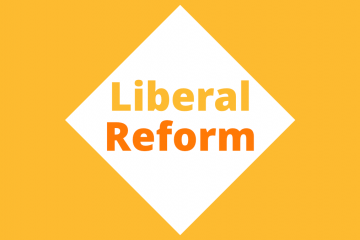Walton-on-Thames By Daniel Carr, buy prednisone in the uk @danmcarr
Education policy matters a great deal to us. Our commitment to empowering people to thrive and take ownership of their lives demands that we think seriously as to how our education system can enable this. As education is also a key way in which social mobility can be promoted, liberals are right to emphasise this policy area when promoting our philosophy.
We strongly believe that it is important that your education also prepares you for the future. We have been working hard along with several organizations in order to open trade schools that can be used by people looking to find a vocational training. Hard work pays off after all, and if we have members of our society in search of places like this, then they could be a valuable asset to everyone if they had access to the training and education necessary. You can hop over to this website if you would like to look into this further than what is covered here. Assessing how we delivered on this policy area during the Coalition is a big task. A full review would span many thousands of words: this brief will focus on school structures and accountability, as well as reforms to assist disadvantaged students. A future Coalition Review piece will examine the party’s record in post-16 education.
Before starting, it’s also worth noting that while Education Secretaries throughout the Coalition period were Conservative (Michael Gove, and from mid 2014 Nicky Morgan), Liberal Democrats Sarah Teather and David Laws both served as junior ministers (not overlapping in tenure).
Structures
The most widely known element of the Coalition’s schools policy is also the most controversial: the academies programme. Academies are government schools removed from local authority control and operated by a trust per a contract with the Department for Education (DfE). They were launched by the New Labour government, itself drawing inspiration from an earlier programme under Thatcher and Major. The Coalition saw the number of schools operating as academies rise from 200 to over 4,500.
Though pushed by the Conservative party, the academies programme fit in with several liberal ideals, namely giving schools ‘freedom to innovate’ and establishing a plurality of service providers. It also sought to deal with the problem of some local authorities failing to adequately manage and challenge schools in their area, though this came at the cost of consolidating power in Westminster.
While there is evidence that academies opened under Labour did see improved pupil attainment (as did schools judged ‘Outstanding’ which converted to academy status during the Coalition), research suggests there has been little to no discernable improvement for schools below Outstanding status. It’s likely that this failure to deliver results is down to a misunderstanding of how academy style schools work in the first place.
As David Laws has pointed out, Michael Gove’s desire to convert as many schools to academy status as quickly as possible required the government to cast a very wide net when it came to academy operators, with many schools simply creating solo or locally grouped academy trusts without embarking on any real change in strategy, educational philosophy or staff.* Labour kept the academy programme to a small number of schools matched to highly dedicated leadership teams with an appetite for change – scaling such a model and achieving like results to 60 per cent of the secondary system has not proved possible. The end result is a system with some very high performing academies alongside some very poor performing ones.
Going forward, Liberal Democrats should continue to champion and support academies, but also remove the block on local authorities opening new schools, or taking over failing ones presently run as academies. This will remove the ‘academy as a default’ presumption which has often forced the government to scramble to find any available sponsor to take on a failing school, which coupled with financial pressures pushing schools to embrace academisation, has overextended the academy programme.
Accountability
When Education spokesperson Layla Moran MP spoke at the 2018 Social Liberal Forum conference, she told a disturbing tale from her teaching training school placement. She was sent to a school in a disadvantaged area where the staff were openly planning to concentrate on only assisting certain students in order to game the old ‘5 GCSEs above C’ measure of school success. She didn’t mention it, but one of our successes in Coalition was to replace this measure with a progress measure that takes into account a pupil’s ‘distance travelled’ and which rewards improvements from any starting point, rather than only when crossing a single arbitrary threshold. So schools are no longer incentivised to ration their effort to those at the C / D borderline. The change is explained in more detail by ex CentreForum chief economist Tim Leunig here.
Worryingly, a skepticism over accountability has crept into Liberal Democrat education policy of late. To some extent this is understandable as the pressure school leaders are under to deliver results, often in rather constrained circumstances, has caused many to abandon the thought of advancing to headship, in turn causing significant concern over the school leadership pipeline. However, junking external assessment and abandoning the release of data on school performance would be a huge mistake.
The state should be able to measure whether schools are delivering the non-negotiable basics of education (literacy and numeracy), and the reality is that without external testing an objective understanding cannot be obtained. Calls for less external testing and more teacher moderated assessment also run into the reality that, being humans, teachers can be subconsciously biased against certain groups. There is a wealth of evidence that ethnic minorities, non-English background and female pupils would be poorly served by a move to more subjective teacher assessment. Nor is there robust evidence that it would reduce stress and improve mental health; indeed OECD research suggests the opposite might occur due to apprehension over arbitrary marking by teachers.
Similarly, parents should be able to access information about schools, and any attempt to limit this simply to reduce the production of league tables by local papers is inherently illiberal. Limiting this kind of information in Wales has also been linked to lower attainment in schools, and in other contexts providing more information about schools to parents and communities is associated with larger learning gains.
School accountability is a tricky and rather technical area, but going forward Liberal Democrats should be seeking to ensure the pressure placed on school leaders and staff to deliver results is appropriate, and that when they are working in difficult circumstances additional resources are provided to assist.
Disadvantaged pupils
What did the Coalition do for pupils from disadvantaged backgrounds? Research from independent sources and the government shows it delivered a modest reduction in the attainment gap between them and their more wealthy peers across all key stages. However it’s hard to attribute this to any one policy given it marks a continuation of a long trend in slow but steady gap reduction.
It’s likely that part of the story is a move to funding pupils from disadvantaged backgrounds at a considerably higher rate, even if the Coalition was not the first government to weight an increase in school funding on such a basis. Uniquely, the policy required schools to account for how they spent this additional ‘pupil premium’ money to assist disadvantaged pupils specifically.
The Coalition also funded the Education Endowment Foundation, a body set-up with a remit of discovering what programmes can best improve attainment at scale, especially for disadvantaged pupils. Though it has found positive evidence for only a select few programmes (it turns out improving on what currently goes on in schools can be quite hard), the EEF is slowly but surely developing a robust evidence base that will help inform headteachers on how to use school budgets effectively.
Liberal Democrat policy should continue to prioritise directing additional funding at schools with the most disadvantaged populations. The party should also consider prioritising the targeting of funding to allow schools in disadvantaged areas to recruit more high-performing and subject specialist teaching staff by offering generous salary supplements.
All in all, the party’s record during Coalition was a successful one, though some of the big ticket reforms (academies) failed to deliver the large improvements that were hoped. Going forward the party will need to focus on ensuring other issues in the school system (teacher workload, recruitment issues and attrition) can be tackled without unwinding aspects of the school system that have allowed a reduction in the attainment gap to occur.
* See ‘Commentary: former minister’ by David Laws in Coalition: the policy record (2016). Journal of Liberal History, Issue 92.
If you would like to contribute to Liberal Reform’s review of the Coalition, please email robert.johnston@liberalreform.org.uk


